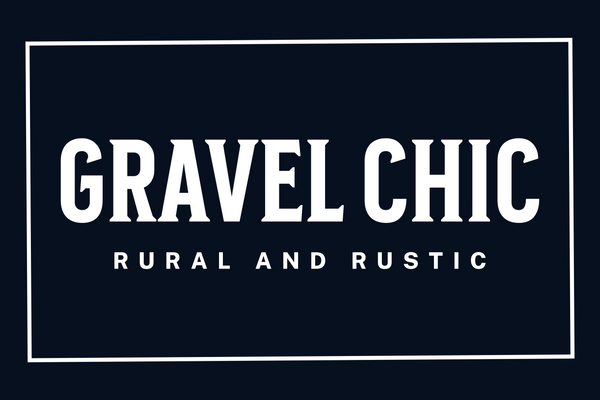Guide to SEO
SEO Best Practices Guide
Search Engine Optimization (SEO) is crucial for enhancing your website's visibility and ranking on search engines like Google. This is a "beginner's guide" overview of best practices that can help improve your site's performance.
1. Keyword Research
Effective SEO begins with thorough keyword research. Identify the terms and phrases your target audience uses when searching for your products or services. Tools like Google Keyword Planner, Ahrefs, and Moz can help you discover relevant keywords. Focus on a mix of short-tail (broad) and long-tail (specific) keywords to attract diverse traffic. Ensure you consider user intent—what the searcher is looking for when they enter those keywords .
2. On-Page Optimization
Optimize individual pages to rank higher and earn more relevant traffic. Key components include:
-
Title Tags: Create unique, descriptive titles that incorporate primary keywords. Aim for under 60 characters to ensure visibility in search results .
-
Meta Descriptions: Write compelling meta descriptions (150-160 characters) summarizing the page content, encouraging clicks from search results .
-
Headings: Use header tags (H1, H2, H3) to organize content hierarchically. Ensure the primary keyword appears in the H1 tag, while H2s and H3s can contain secondary keywords .
-
Content Quality: Provide valuable, informative content that addresses user queries. Incorporate keywords naturally without keyword stuffing, and aim for comprehensive coverage of the topic .
-
Image Optimization: Use relevant images and optimize them by including alt text with descriptive keywords, which also improves accessibility .
3. Technical SEO
Technical aspects of your site can significantly affect SEO performance. Key areas include:
-
Mobile Friendliness: Ensure your site is responsive and provides a good user experience on mobile devices. Google prioritizes mobile-first indexing
-
Site Speed: Optimize loading times by compressing images, leveraging browser caching, and minimizing HTTP requests. Tools like Google PageSpeed Insights can help identify areas for improvement .
-
Secure Sockets Layer (SSL): Use HTTPS to secure your site. Security is a ranking factor for Google, and an SSL certificate builds trust with users .
-
XML Sitemap: Create and submit an XML sitemap to help search engines crawl your site efficiently. Ensure it's kept up-to-date as you add or modify content .
-
Robots.txt: Utilize a robots.txt file to guide search engines on which pages to crawl and index, preventing duplicate content issues .
4. Content Strategy
A strong content strategy can drive organic traffic and enhance user engagement. Focus on:
-
Blogging: Regularly publish blog posts that address common questions or trending topics in your industry. This not only helps with keyword optimization but also positions your brand as an authority .
-
User-Generated Content: Encourage reviews and testimonials, which can enhance trust and provide fresh content for your site .
-
Multimedia Content: Incorporate videos, infographics, and podcasts to diversify content formats and engage users on different levels .
5. Link Building
Building high-quality backlinks from reputable sites can enhance your domain authority and improve search rankings. Strategies include:
-
Guest Blogging: Write articles for other websites in your niche to gain exposure and backlinks .
-
Collaborative Content: Partner with influencers or industry leaders to create content that can be shared across multiple platforms, enhancing reach and backlinks .
-
Social Media Promotion: Share your content on social media to increase visibility and attract backlinks organically .
6. Monitoring and Analytics
Regularly analyze your SEO performance using tools like Google Analytics and Google Search Console. Monitor metrics such as organic traffic, bounce rates, and conversion rates to evaluate the effectiveness of your strategies . Adjust your approach based on data insights to continually improve your SEO efforts.
7. Further Resources
Here are some key resources you may wish to explore further. Please note, Gravel Chic, LLC is NOT affiliated with these entities and we do NOT receive any funds related to your utilization of them:
Here are some key resources and best practices:
-
Google Search Central: This is the official source for Google's SEO guidelines. It covers essential topics like optimizing your site for crawling and indexing, improving mobile usability, and enhancing the user experience. You can find their Search Engine Optimization (SEO) Starter Guide here.
-
Search Engine Journal: This platform offers various SEO strategies and best practices, including the importance of keyword optimization, the role of backlinks, and techniques for improving website speed. Their articles on SEO strategy provide insights into current trends and effective tactics. More information can be found here.
-
Ahrefs: Known for its SEO tools, Ahrefs also shares valuable information on optimizing for SEO, including keyword research, content optimization, and backlink strategies. Their 2024 SEO tools and tactics guide is an excellent resource for staying up-to-date with the latest practices. You can check it out here.
-
Moz: Another reputable source in the SEO field, Moz offers guides on various aspects of SEO, including on-page and off-page strategies, keyword research, and technical SEO. They also provide a beginner's guide to SEO, which can be very helpful for those starting. Visit Moz's resources here.
-
Yoast: This well-known plugin for WordPress provides insights into SEO best practices tailored for WordPress users, but many of their strategies can be applied universally. They emphasize the importance of content quality, readability, and metadata optimization. Learn more at Yoast.
Conclusion
Implementing these SEO best practices can significantly enhance your website’s visibility and effectiveness in attracting targeted traffic. SEO is an ongoing process; staying informed about the latest trends and adapting to changes in search engine algorithms is crucial for long-term success. For more in-depth information, consider visiting Google Search Central and Search Engine Journal.
